Samsung Galaxy Note 10+ performance review: what can the Exynos 9825 do?
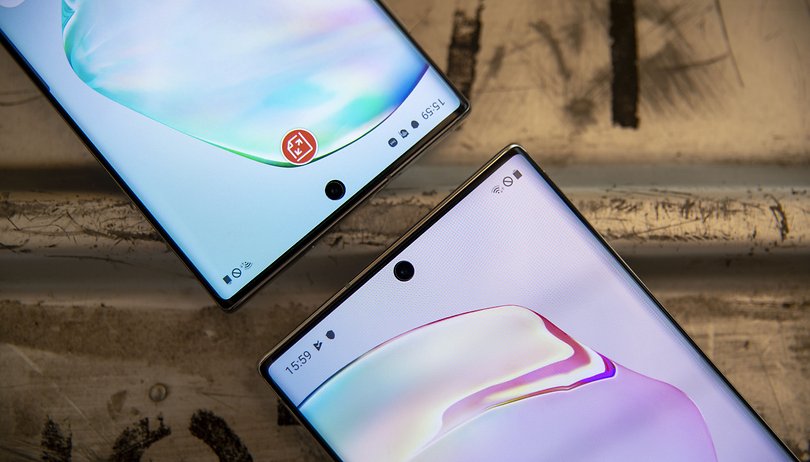

The Galaxy Note 10+ is officially out this week. We are currently using the smartphone extensively for our full review, and have therefore already carried out our benchmark tests. We didn't want to keep them from you until the final review is finished, so here they are.
You can find more videos on current tech topics on our video page.
Before we draw our final conclusion on the Galaxy Note 10 Plus, we wanted to see how it performs in comparison to its direct predecessor, the Galaxy Note 9, and also how it competes against the Galaxy S10 Plus. In all cases, by the way, we performed the benchmarks with the preset Full HD resolution.
In terms of hardware, there are of course a few differences. The Note 9 is driven by the in-house Exynos 9810/Snapdragon 845. The S10 Plus uses the successor Exynos 9820/Snapdragon 855 as its processor. But then Samsung used the Exynos 9825 in the current flagship. It's a slightly polished version of the 9820, which Samsung hopes will deliver up to 20 percent more power. The version we have here in Berlin is the European, Exynos 9825 version, for the record.
There are also differences in the main memory. Our Note 9 has 6 GB of RAM in it, our S10 Plus 8 GB, and our Note 10 Plus has 12 GB. Actually, all signs point to a victory for the newest Samsung smartphone. But what do the numbers actually look like?
Is there a 20% performance increase?
With one exception, the Galaxy Note 10 Plus scores better than the Note 9 in all benchmarks, the only anomaly being the slightly higher Geekbench 4 single-core test score for last year's phablet. Otherwise, the results of the Note 10 Plus are, as expected, higher.
What's interesting is the direct comparison between Note 10 Plus and Galaxy S10 Plus. If you look at the values of the 3D Mark Sling Shot Extreme ES 3.1 and the 3D Mark Sling Shot Vulcan, the values of the newer device are actually quite a lot higher. However, in both cases, we only see an increase in performance of just under 12 percent.
Otherwise, the values are no higher than on the S10 Plus. The Geekbench 4 scores are even a bit lower. At present, we can only speculate on the possible reasons for this. Our Note 10 Plus runs final software, the first update has already been installed. Nevertheless, it is conceivable that Samsung will add to this and introduce further software optimizations.
On the other hand, processor production must also be considered here. The Exynos 9820 was manufactured with an 8-nanometer process using the deep ultraviolet process. The Exynos 9825, on the other hand, uses a 7-nanometer process with the extreme ultraviolet process. It looks as if the advantages of this new technology only became apparent further down the line.
Samsung Galaxy Note 10+ benchmark comparison
| Galaxy Note 10+ | Galaxy S10+ | Galaxy Note 9 | |
|---|---|---|---|
| 3D Mark Sling Shot Extreme ES 3.1 | 4907 | 4371 | 3379 |
| 3D Mark Sling Shot Volcano | 4777 | 4276 | 2884 |
| 3D Mark Sling Shot ES 3.0 | 4338 | 4503 | 4061 |
| 3D Mark Ice Storm Unlimited ES 2.0 | 54663 | 56128 | 41354 |
| Geekbench 4 (Single / Multi) | 3652 / 10234 | 4175 / 10031 | 3753/ 8998 |
| PassMark Memory | 19065 | 19777 | 10040 |
| PassMark Disk | 72588 | 75870 | 71197 |
How does the Galaxy Note 10 Plus perform?
Of course, this is only one side of the coin, because the benchmarks only reflect the experience in daily use to a very limited extent. And the most important thing to say is that in daily use, the Note 10 Plus certainly does not feel slow, on the contrary. The smartphone runs fast and smoothly and seems to have more than enough power at all times. We have not yet completed our full review, and will of course be confirming the benchmark results there again. In addition, we will let the Galaxy Note 10 Plus compete against smartphones with other processors - such as the Snapdragon 855, and certainly also against a current Kirin.
You can find more videos on current tech topics on our video page.
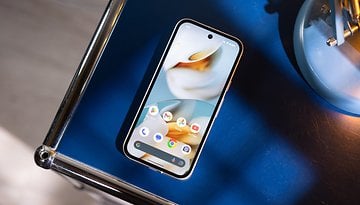
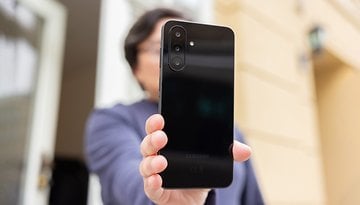
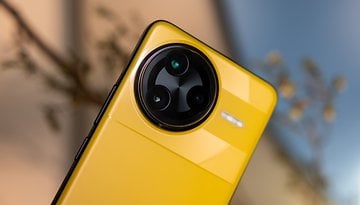
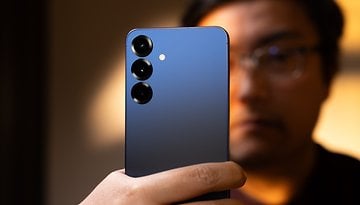










My s10+ performs just as good. Not much of an upgrade, same processer. What happened to the 855+? Better charging speeds, 1100.00 bucks, nah!